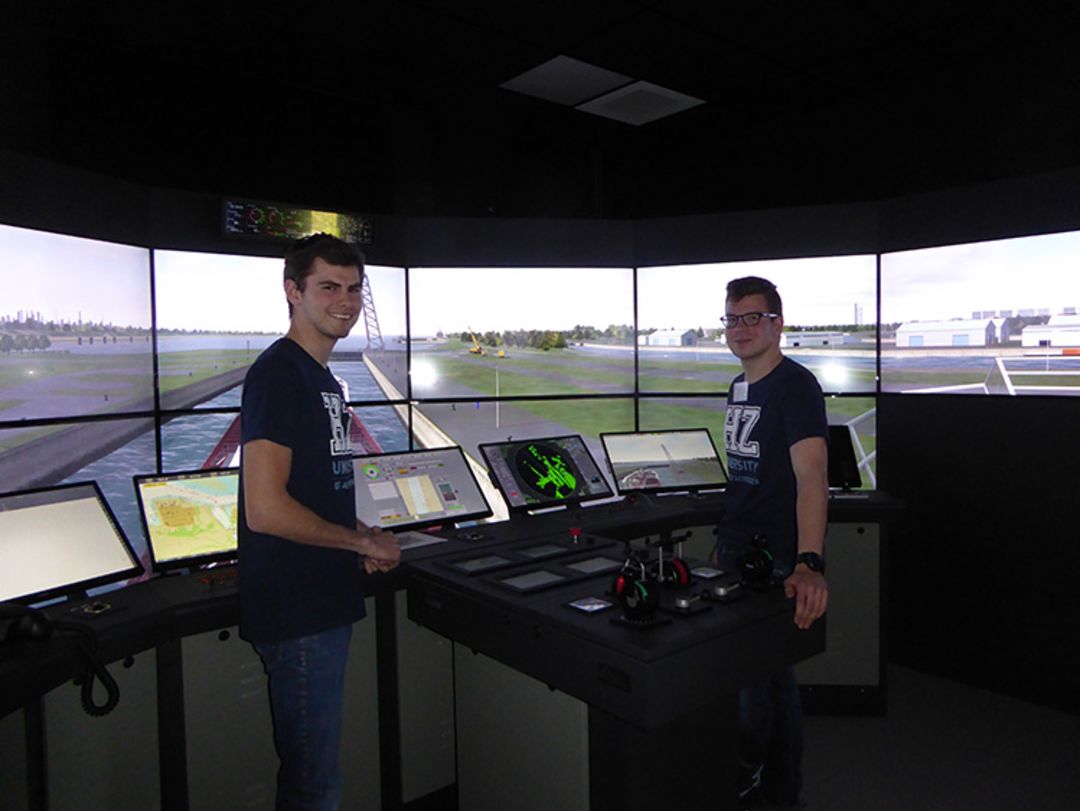A permanent shift? How Dutch training providers have adapted to the pandemic
10 March 2021

Covid-19 has affected training for maritime professionals in the Netherlands severely since the Dutch government proclaimed its 'intelligent lockdown' in March 2020. Hans Walthie asks three Dutch opinion leaders in the field of maritime training and education how they have dealt with Covid and the two lockdowns imposed by the Dutch government
The emergency training provider: STC-KNRM offshore safety training director Riemert Moleman
The Covid pandemic changed the world of maritime emergency training, which normally consists of a combination of classroom theory sessions combined with practical skills training.
During the first months of the pandemic we changed to online theory sessions instead of classroom teaching. Practical training could be attended three months after the online sessions. Before Covid-19, the legislators who accredit our type of training were very reluctant to allow this online teaching.
In the second phase of the pandemic e-learning/blended learning was introduced. Slowly but surely our training portfolio is now changing completely to blended learning programmes. The participants and clients see the benefit, especially in cutting time and costs for travel, hotels, etc. The training providers face the challenge of demonstrating the competence and skills of the participants after blended training sessions.
What we mostly miss is the interaction and knowledge sharing between participants in classroom sessions. We believe that when Covid-19 restrictions are finally history, clients will not change back to the old-fashioned classroom theory sessions.
The online world offers a wide range of exciting educational tools and people have come to appreciate this, not least because it facilitates long-distance learning and gives students more flexibility which, especially in a sector where people are constantly traveling through different time zones, is convenient. Wencke Boerrigter, owner of STC Publishing
The academic: Arjen Mintjes, director, Maritime Academy Harlingen
At our college we still try to give our students as many physical lessons as possible within the rules. The students also live at school, and school is about much more than just consuming teaching material, so we think this is very important.
In practice, this meant that during the first lockdown we had to provide all lessons online except for a number of practical lessons. Because we have been working with an electronic learning environment for the vocational subject for more than 10 years, and all students receive a laptop, this was hardly an issue.
On 2 June 2020 we reopened for all students and we were able to physically give all lessons at VMBO level [a mix of practical and theoretical education usually taken from ages 12-16] until the Christmas holidays. Pupils and their parents were very happy with this. In the MBO [post-secondary schooling] course we gave all practical lessons physically and divided the theoretical subjects between online and physical.
During the second lockdown from 4 January the VMBO exam classes took all lessons at school and the MBO student had practical lessons where possible. The rest of the lessons were provided online.
From 1 March, all students again received physical lessons. Due to social distancing, it is not possible to run a complete schedule.
The publisher: Wencke Boerrigter, owner of STC Publishing
Covid has certainly changed the way we teach and develop ourselves. Rather than reading a book or listening to a lecturer, a growing number of students and training institutes have moved to a more 'hybrid' model: information comes to the students through various channels, such as e-learning, YouTube and webinars in combination with a printed book and a 'real' classroom, where practical skills can be trained.
'The online world offers a wide range of exciting educational tools and people have come to appreciate this, not least because it facilitates long-distance learning and gives students more flexibility which, especially in a sector where people are constantly traveling through different time zones, is convenient.
'I don't think this will change once we are back to 'normal', and it is very likely that we will continue to use all these various tools. As a publisher, we are therefore becoming more 'hybrid' as well and are constantly developing new tools and information channels that meet these new demands. Five years ago, we only published printed books; we now have a portfolio that offers webinars, e-books, augmented reality and instruction videos.'
Tags
